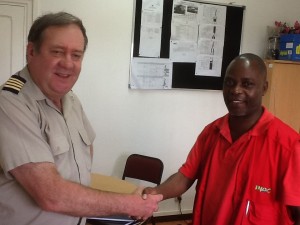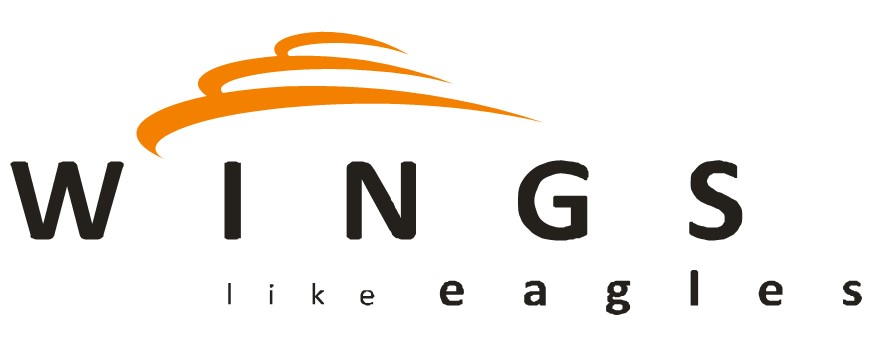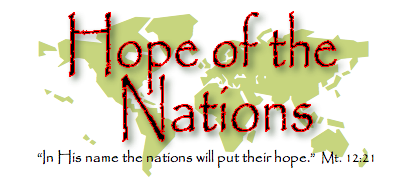
We needed a good aid team to deliver help in 2013.
Thanks for the aid!
Here, a volunteer and our trustee Clive Langmead thanks Manuel Maxlhaieie, the INGC delegate of the Gaza Region, in Xai-Xai, Mozambique.
The INGC is the name of the government department that manages the disaster response in Mozambique.
So Manuel lead the regional disaster response of the Mozambican Government. In 2013, we were all focused on those affected by the Limpopo floods. Manuel arranged the cargo and passengers and fuel for us and for the other helicopters.
And he did much more besides. Thank you Manuel!
The aid team helped us to help them
Thank you INGC and the Government of Mozambique for letting us be part of your aid team! And not just for us.
Aid surveys
The aid team helped us conduct surveys of the bridges. They helped us fly key members of the Government. Elsewhere you can see the Interior Minister about to go flying with us. The deputy Minister of Education also flew. The World Bank staff and other engineers who could see the scope of the floods were also passengers. All of them needed an eagle eye view of the disaster problems. Then they could report to the Cabinet or the donors. Decisions were urgent. The right perspective helps. Then they could be make sure help went where it was most needed.
This survey activity helps us to get ‘the right aid to the right people’ and deliver our Purpose.
Aid cargo
Manuel and his team also helped us to deliver cargo. This is life saving for those afflicted in a disaster. Aid cargo helps when those suffering have lost their crops and their reserves. Food may be the most helpful, and that is often best delivered with big helicopters. Smaller helicopters have a role too – flying helpful cargo to smaller, more isolated groups.
Food isn’t the only helpful cargo. Non-food items are also really useful. Plastic buckets enable the affected to collect water. Water purification tablets enable the water to be used for drinking. Hygiene kits enable hands or clothes to be washed, or women to be comfortable. Cooking pots allow food to be prepared.
Shelter kits are hugely important too. Tarpaulins, blankets and mosquito nets give shelter and a good night’s sleep for those who are recovering. That’s really useful too, but those loads are often heavier and so larger helicopters may be needed for bigger communities.
So flying medical staffs is not the only way to help us save and sustain lives. Why not have a look at the aid cargoes we flew?
Can you help?
Why not help them by donating? Or contact us?






0